Ditapis dengan
E-book Handbook of Research on the Global View of Open Access and Scholarly C…
Open Access to the results of scientific research brings promising and democratic solutions to enlighten citizens. It may contribute to upgrade the quality of scientific information and to raise the level of ac-ceptance of common scientific representations amongst the population. However, this is far from being systematic: in the same time when huge scientific progress enabled the making of a v…
- Edisi
- -
- ISBN/ISSN
- 9781799898085
- Deskripsi Fisik
- 461 hlm
- Judul Seri
- -
- No. Panggil
- 020 ALE h
E-book Wikipedia @ 20 : Stories of an Incomplete Revolution
Twenty years ago, Wikipedia set out on its path to provide humanity with free access to the sum of all knowledge. Even if this is a mission that can’t be finished, Wikipedia has made remarkable progress toward the impos-sible. How so? Wikipedia is an encyclopedia built on a wiki. And never has an application (gathering the sum of human knowledge) been so suited to its medium (easily …
- Edisi
- -
- ISBN/ISSN
- 9780262538176
- Deskripsi Fisik
- 377 hlm
- Judul Seri
- -
- No. Panggil
- 020 AYE w
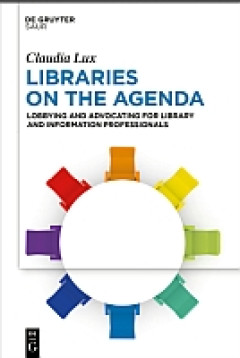
E-book Libraries on the Agenda: Lobbying and Advocating for Library and Infor…
Libraries on the Agenda shows how to engage in lobbying and advocating for libraries. The book analyzes political elements of power, policy making and human values. Political decision makers from local communities up to the international level need to be convinced, why libraries need their support. This title has an international approach to advocacy and shows many international examples. It pr…
- Edisi
- -
- ISBN/ISSN
- 9783110796087
- Deskripsi Fisik
- 305 halaman
- Judul Seri
- -
- No. Panggil
- 020 LUX l
E-book Foundation of Library and Information Science
Library science is basically the study of how to operate a library. The field is made up of several branches, including public services, technical services and administration. It is referred to as “library and information science” at many colleges and universities because librarians work with physical books as well as virtual information. Library science (often termed library studies or lib…
- Edisi
- -
- ISBN/ISSN
- -
- Deskripsi Fisik
- 302 halaman
- Judul Seri
- -
- No. Panggil
- 020 GAU f
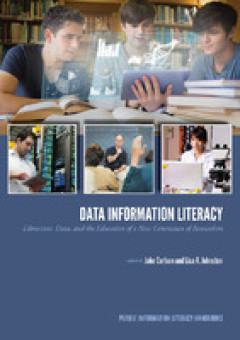
E-book Data Information Literacy: Librarians, Data, and the Education of a Ne…
Given the increasing attention to managing, publishing, and preserving research datasets as scholarly assets, what competencies in working with research data will graduate students in STEM disciplines need to be successful in their fields? And what role can librarians play in helping students attain these competencies? In addressing these questions, this book articulates a new area of opportuni…
- Edisi
- -
- ISBN/ISSN
- 9781557538987
- Deskripsi Fisik
- 282 halaman
- Judul Seri
- -
- No. Panggil
- 020 CAR d
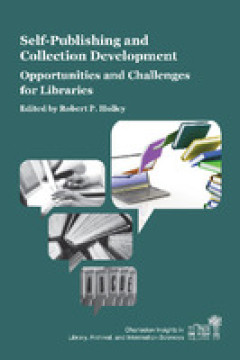
E-book Self-Publishing and Collection Development: Opportunities and Challeng…
The current publishing environment has experienced a drastic change in the way content is created, delivered, and acquired, particularly for libraries. With the increasing importance of digital publishing, more than half the titles published in the United States are self-published. With this growth in self-published materials, librarians, publishers, and vendors have been forced to rethink chan…
- Edisi
- -
- ISBN/ISSN
- 9781557539687
- Deskripsi Fisik
- 198 halaman
- Judul Seri
- -
- No. Panggil
- 020 HOL s
E-book The Deliverance of Open Access Books : Examining Usage and Dissemination
Platforms for open access monographs are fairly new and they are just one aspect of the changes in the way scholarly and scientif ic results are made public. As I became involved in the development of both the OAPEN Library and the Directory of Open Access Books, questions on optimiza-tion arose. How can we improve these open access book platforms if there are few examples to learn…
- Edisi
- -
- ISBN/ISSN
- 9789085551201
- Deskripsi Fisik
- 235 hlm
- Judul Seri
- -
- No. Panggil
- 020 SNI t
E-Book Theological Libraries and Library Associations in Europe
During the past 50 years, theological libraries have confronted secularisation and religious pluralism, along with revolutionary technological developments that brought not only significant challenges but also unexpected opportunities to adopt new instruments for the transfer of knowledge through the automation and computerisation of libraries. This book shows how European theological libraries…
- Edisi
- -
- ISBN/ISSN
- 9789004523197
- Deskripsi Fisik
- 598 halaman
- Judul Seri
- -
- No. Panggil
- 020.72 KEN t
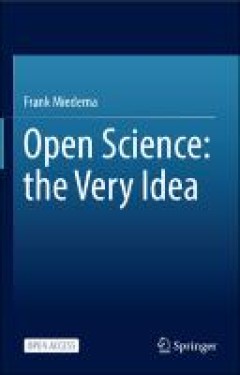
E-Book Open Science: The Very Idea
This open access book provides a broad context for the understanding of current problems of science and of the different movements aiming to improve the societal impact of science and research. The author offers insights with regard to ideas, old and new, about science, and their historical origins in philosophy and sociology of science, which is of interest to a broad readership. The book show…
- Edisi
- -
- ISBN/ISSN
- 9789402421156
- Deskripsi Fisik
- 247 halaman
- Judul Seri
- -
- No. Panggil
- 020.1 MIE o
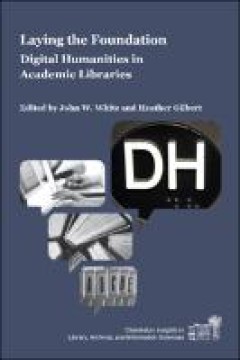
E-Book Laying the Foundation
Laying the Foundation: Digital Humanities in Academic Libraries examines the library’s role in the development, implementation, and instruction of successful digital humanities projects. It pays special attention to the critical role of librarians in building sustainable programs. It also examines how libraries can support the use of digital scholarship tools and techniques in undergraduate e…
- Edisi
- -
- ISBN/ISSN
- 9781557537515
- Deskripsi Fisik
- 214
- Judul Seri
- -
- No. Panggil
- 027 WHI l
E-book Jesuit Libraries
Scholars have depended on collections of written material in some form for millennia. While in the twenty-first century, more and more institutions refer to such collections as “Learning Commons” to reflect more accurately the availability of multiple media formats, institutions called libraries have a long history of acting as repositories not only of books but also of art, unbound documen…
- Edisi
- -
- ISBN/ISSN
- 9789004517370
- Deskripsi Fisik
- 91 hlm
- Judul Seri
- -
- No. Panggil
- 020 COM j
E-book New Libraries in Old Buildings : Creative Reuse
Formerly seen as a menial architectural task, adaptive reuse has come into its own. It is no longer a secret, and certainly no longer a novel idea, that the archi-tecture of adaptive reuse is, in terms of architectural creativity, beauty and impor-tance, in no way inferior to designing and building a brand-new building (Hauke and Werner 2011).Architecture incorporating existing …
- Edisi
- -
- ISBN/ISSN
- 9783110679663
- Deskripsi Fisik
- -
- Judul Seri
- -
- No. Panggil
- 727.8 HAU n
 Karya Umum
Karya Umum  Filsafat
Filsafat  Agama
Agama  Ilmu-ilmu Sosial
Ilmu-ilmu Sosial  Bahasa
Bahasa  Ilmu-ilmu Murni
Ilmu-ilmu Murni  Ilmu-ilmu Terapan
Ilmu-ilmu Terapan  Kesenian, Hiburan, dan Olahraga
Kesenian, Hiburan, dan Olahraga  Kesusastraan
Kesusastraan  Geografi dan Sejarah
Geografi dan Sejarah